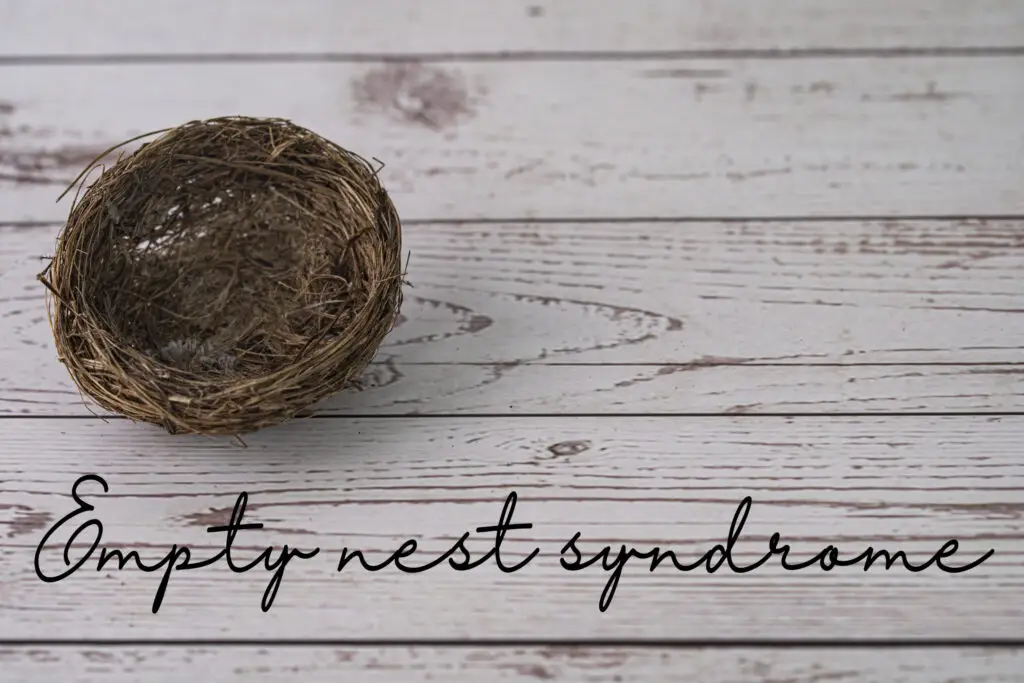The Empty Nest: Change and Loss are Deeply Connected
Experts say that as your life changes and your kids move out of the house, you can experience an overwhelming sense of loss. Change and loss are deeply connected. Sometimes loss is as simple as that depicted in a cartoon I saw recently. It showed a mom and dad waving goodbye to their young adult child, who is moving away from home. The husband turns to his wife, who is crying and says, “Don’t cry, honey. We will find other tech support.” Yet many people feel a much deeper sense of loss, like the woman who told me, “The adjustment of not being a part of my kid’s day-to-day life hit me like a ton of bricks. I felt emotional pain and a loss of purpose.” I think she sums up the feelings of many parents once their kids are given the passport to adulthood. The kids appear to be doing fine, but the parents are grieving the loss. The people who cope best with the empty nest are those who are willing to recognize their grief. It’s possible that this period in your life will bring to the surface loneliness, doubt, and worry about the future. I remember staring at Cathy in silence one evening in our now noiseless home. I was excited that we could spend more time together but also frightened that we had some work to do in our relationship. Our kids had been our major distraction, our excuse for a lack of connection. Would we have anything to say to each other?
The interesting fact about this syndrome is that it’s not a clinical diagnosis or a mental disorder but rather a feeling, an emotion, a mood, and even a burden. One woman put it this way: “I was terrified. I had no idea what I was going to do now that I was no longer anchored by school runs and filling the refrigerator. When I looked at my life minus my children in the house, it looked dark and gloomy. I dreaded it. My existence seemed almost meaningless, like part of me had died.”
Parents experience normal feelings of sadness, loss, angst, and loneliness when their children leave home. It’s normal, but not necessarily anticipated. Some experience deep pain like the man who told me, “When my son left home, I was distraught. I felt like I had lost part of myself. I felt gutted.” In a televised interview, rock singer and pop-culture icon Madonna confided that sending her daughter off to the University of Michigan was “an absolutely devastating experience” that sent her reeling “into the deepest depression.”[1] For other parents, it’s not as intense, even though they still need to create a healthy transition into this new phase of their lives. Unfortunately, the empty nest sometimes coincides with other changes mentioned previously such as the onset of menopause, the breakdown of the marriage, dealing with an illness or the loss of parents, divorce, moving, retirement, financial stress, and adult children violating the family’s values.
Since the empty-nest syndrome usually sneaks up on us, I created the Empty-Nest Syndrome Quiz to help you identify how you’re doing.
The Empty-Nest Syndrome Quiz
On a scale of 1 to 5, mark the intensity of your feelings.
_____ I have experienced a sense of loss in the empty nest.
_____ I have had trouble adjusting to the change in my parental role.
_____ I have experienced a lack of purpose in life since my kids left.
_____ I often feel deeply alone.
_____ I have felt a loss of interest or energy in my love life.
_____ I have felt depressed or anxious more often.
_____ I have noticed a loss of self-identity since the children left.
_____ I sometimes feel like the best years are behind me.
_____ I have a lot of fear about the future.
_____ I am too often preoccupied with my absent children’s safety and welfare.
Score
40–50 Full alert! But don’t despair just yet. It’s gonna be okay.
30–40 Intense feelings have brought you here. Keep working on it.
20–30 Okay, average level of freaking out. Not too bad.
10–20 Good for you. Maybe you should be writing about the empty nest!
0–10 Hmm. That doesn’t seem right. Are you sure?
How you perform on this self-grading quiz doesn’t indicate whether you pass or fail at living in the empty nest. It’s more of a self-awareness experience to see how much effort it will require to put your life in order and make your empty-nest years the best. Remember, part of your life moved out of the house. Now it’s time to reinvent your life and not only thrive but have a different and better relationship with your adult kids. More next time …
[1] Jennifer Pearson, “‘I Fell into the Deepest Depression’: Madonna Says That Sending Her Daughter Lourdes, 18, to College Was ‘Devastating’ on Ellen Show,” DailyMail.com, March 17, 2015, www.dailymail.co.uk.



